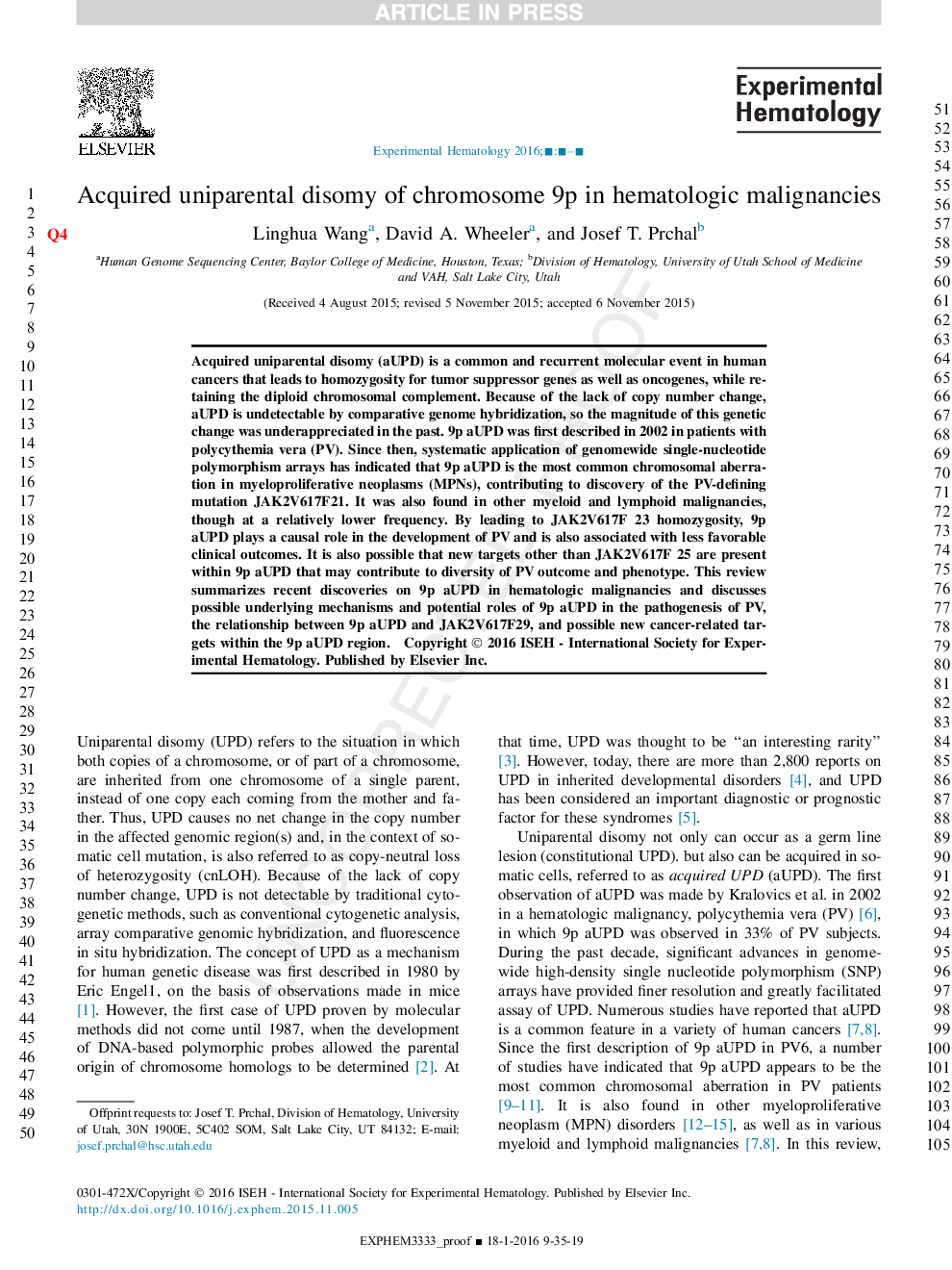| کد مقاله | کد نشریه | سال انتشار | مقاله انگلیسی | نسخه تمام متن |
|---|---|---|---|---|
| 10907269 | 1087399 | 2016 | 9 صفحه PDF | دانلود رایگان |
عنوان انگلیسی مقاله ISI
Acquired uniparental disomy of chromosome 9p in hematologic malignancies
دانلود مقاله + سفارش ترجمه
دانلود مقاله ISI انگلیسی
رایگان برای ایرانیان
موضوعات مرتبط
علوم زیستی و بیوفناوری
بیوشیمی، ژنتیک و زیست شناسی مولکولی
تحقیقات سرطان
پیش نمایش صفحه اول مقاله

چکیده انگلیسی
Acquired uniparental disomy (aUPD) is a common and recurrent molecular event in human cancers that leads to homozygosity for tumor suppressor genes as well as oncogenes, while retaining the diploid chromosomal complement. Because of the lack of copy number change, aUPD is undetectable by comparative genome hybridization, so the magnitude of this genetic change was underappreciated in the past. 9p aUPD was first described in 2002 in patients with polycythemia vera (PV). Since then, systematic application of genomewide single-nucleotide polymorphism arrays has indicated that 9p aUPD is the most common chromosomal aberration in myeloproliferative neoplasms (MPNs), contributing to discovery of the PV-defining mutation JAK2V617F21. It was also found in other myeloid and lymphoid malignancies, though at a relatively lower frequency. By leading to JAK2V617F 23 homozygosity, 9p aUPD plays a causal role in the development of PV and is also associated with less favorable clinical outcomes. It is also possible that new targets other than JAK2V617F 25 are present within 9p aUPD that may contribute to diversity of PV outcome and phenotype. This review summarizes recent discoveries on 9p aUPD in hematologic malignancies and discusses possible underlying mechanisms and potential roles of 9p aUPD in the pathogenesis of PV, the relationship between 9p aUPD and JAK2V617F29, and possible new cancer-related targets within the 9p aUPD region.
ناشر
Database: Elsevier - ScienceDirect (ساینس دایرکت)
Journal: Experimental Hematology - Volume 44, Issue 8, August 2016, Pages 644-652
Journal: Experimental Hematology - Volume 44, Issue 8, August 2016, Pages 644-652
نویسندگان
Linghua Wang, David A. Wheeler, Josef T. Prchal,